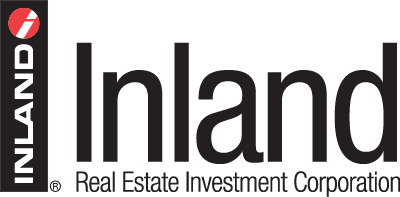The Inland Academy is committed to informing and educating individuals on all aspects of the 1031 exchange process and the structure of choice, the Delaware Statutory Trusts (DSTs). Part of that responsibility includes helping everyone understand the roles of the key players involved in a properly executed 1031 transaction, like the Qualified Intermediary.
A Qualified Intermediary (QI), sometimes known as an accommodator or facilitator, is a critical part of a 1031 exchange. Choosing the right provider is key to executing a successful transaction.
In order to complete a 1031 exchange, an investor must not take “constructive receipt” of the proceeds from the sale of the relinquished property. Constructive receipt is a tax concept in which a taxpayer is liable for income, which may not have been physically received, but has been credited to the taxpayer’s account or otherwise becomes available for him or her to draw upon in the future. The QI is an entity (person or company) who, for a fee, acts to facilitate the 1031 exchange by entering into a contractual agreement for the exchange of properties, avoiding constructive receipt.
It's important to know that neither the taxpayer nor a “disqualified person” may serve as a QI. A “disqualified person” is the agent of the exchanger at the time of the exchange. A person who has acted as the taxpayer’s employee, attorney, accountant, investment banker or broker, or real estate agent or broker, within the two-year period preceding the date of the transfer of the first relinquished property, is treated as an agent of the exchanger, and thereby a disqualified person. If an attorney has provided tax or legal services to the exchanger within the prescribed two-year period, the attorney is a disqualified person.
The 1031 exchange QI is responsible for:
- preparing the 1031 exchange legal agreements and related transaction documents in order to properly structure the transaction;
- receiving, holding and safeguarding the 1031 exchange funds throughout the transaction; and
- advising, coordinating or consulting on the implementation of the 1031 exchange transaction to ensure compliance with the Internal Revenue Code, Treasury Regulations and related Revenue Rulings and Procedures.
A significant amount of care should be taken to select a QI because of the crucial role this entity plays in the administration of the 1031 exchange transaction. The industry under which QIs operate is not as heavily regulated as the securities industry and that’s why it’s important to consider several of the following factors during the selection process:
Established and Experienced
The 1031 exchange process is involved, and it takes a competent, well-established QI to provide services for an investor that comply with the requirements. Investors are advised to ensure the QI has many years of experience and understands the 1031 exchange requirements so they can easily guide clients through a transaction.
Policies, Procedures and Internal Audit Controls
Detailed policies, procedures and internal audit controls are critical in minimizing the risk of loss to 1031 exchange funds and assets while being held by the QI. Established providers will have sophisticated processes that typically include multiple checks and balances to ensure the QI is taking into consideration the needs and interests of clients first.
Separate, Segregated Qualified Trust Accounts
It is typical for an active QI to facilitate multiple 1031 exchanges simultaneously. It is important that the QI segregates the funds for each exchange into separate accounts that are held distinctly for the benefit of each individual exchanger. Segregated accounts guard the funds of the QI’s clients if a QI runs into financial difficulty or declares bankruptcy.
Safety of 1031 Exchange Funds
Another important element is the protection of the 1031 exchange funds while being held and managed by the QI. Fidelity bonding safeguards against intentional wrongful acts, such as fraud, theft and forgery. A selected QI ought to maintain fidelity bonding from a reputable provider to transfer the risks associated with deliberate wrongful acts to another party.
Errors and Omissions
QIs should maintain an errors and omissions (E&O) insurance policy from a reputable insurance provider. E&O insurance protects the 1031 investor and the QI from risks associated with actual or perceived errors and omissions performed by the QI during the exchange period. Although sophisticated internal controls and processes can minimize the risk of loss, mistakes are always possible.
It is always acceptable – and encouraged – for a potential client to request a copy of the QI’s insurance policies, both E&O insurance and fidelity bonding, in order to verify the insurance underwriter, the policy limit, and policy term/expiration date, to ascertain whether the policies are sufficient. It is also important in regard to the fidelity bonding to note whether the policy limit is “per occurrence” (applies to each individual incidence) or “in aggregate” (the total or maximum coverage available to investors for the 12-month policy period regardless of the number of losses).
While QIs are essential to the 1031 exchange process, there are several considerations an investor must be aware of when selecting a QI for an exchange. In addition to complying with the IRS guidelines for completing a successful exchange, it benefits the investor to know what to look for in a QI to protect their capital and their tax-deferred status during the exchange process. Referring to the key components discussed here can help investors pick a QI that will not put their investment at undue risk.
Conclusion
Hopefully this post provides insight on why the QI is essential to the 1031 exchange process. By understanding not only the key functions a QI performs in an exchange, but also by recognizing several of the key qualities to consider when evaluating a QI, investors will be better equipped to make the right selection for their unique 1031 exchange needs.

